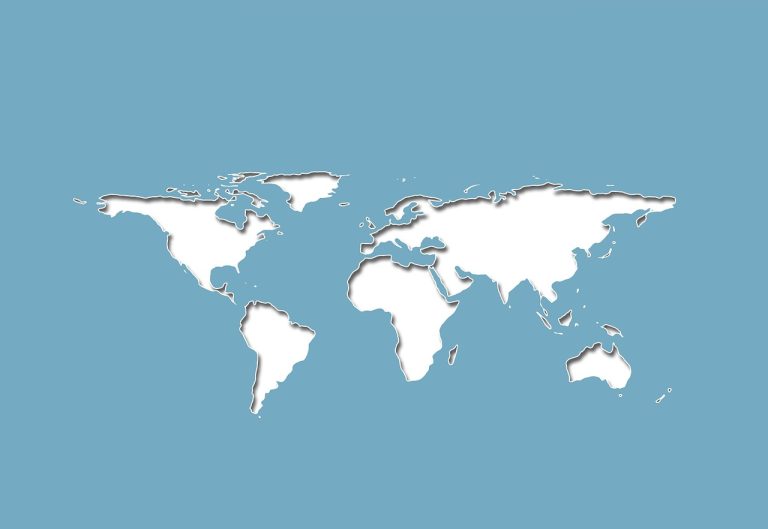
Deciphering Political Alliances in the Philippines: Influences and Implications on 2022 Elections
The intricate web of political alliances in the Philippines is a significant factor that shapes the landscape of its elections. The 2022 elections were no exception, as these alliances played a crucial role in determining the outcomes. Understanding these political alliances offers insights into how they influence voter behavior, candidate success, and the overall political stability of the country.
Understanding the Nature of Political Alliances
Political alliances in the Philippines are often formed out of necessity rather than ideology. Unlike in many Western democracies where political parties may be defined by a specific political philosophy, Filipino political parties tend to be more fluid and personality-driven. The Council on Foreign Relations notes that these alliances are frequently based on pragmatism, focusing on immediate political gains rather than long-term ideological goals.
The Role of Political Clans
The Philippines is unique in its prevalence of political clans, which can wield significant power within political alliances. These clans often have deep-rooted influence in their respective regions, allowing them to mobilize votes effectively. The influence of political clans can be observed in the way they form alliances with national political figures to secure mutual benefits. This dynamic can be seen in the alliances between local political dynasties and national candidates, which were particularly evident in the 2022 elections.
Influence of Coalition Politics

Coalition politics is another prominent feature of the Philippine electoral landscape. Given the fragmented nature of the political party system, candidates often rely on coalitions to bolster their chances of success. These coalitions can bridge various political, regional, and even economic interests. For instance, the formation of the “Uniteam” coalition in the 2022 elections exemplified how different political entities came together to support a common presidential candidate, demonstrating the strategic importance of coalition building.
Impact on Voter Behavior
Political alliances significantly influence voter behavior in the Philippines. Voters are often swayed by the endorsements of influential figures or groups within these alliances. The loyalty of voters to specific political clans or coalitions can have a substantial impact on election outcomes. According to Nikkei Asia, this loyalty plays a crucial role in maintaining the power structures that define Philippine politics.
Media and Political Alliances
The media landscape in the Philippines also plays a critical role in shaping political alliances. Media outlets, which may be owned or influenced by political figures, can sway public perception and election outcomes. The coverage of political campaigns, the portrayal of alliances, and the dissemination of information all contribute to how political alliances are perceived by the public. Rappler provides insight into how media ownership and political connections can impact the democratic process.
Challenges and Risks
While political alliances can offer strategic advantages, they also pose significant challenges and risks. The fluidity and transactional nature of these alliances can lead to instability and unpredictability in governance. The lack of ideological coherence within alliances can result in policy inconsistencies. Furthermore, the concentration of power within political clans can undermine democratic principles by limiting political competition and perpetuating nepotism.

Case Study: The 2022 Philippine Elections
The 2022 Philippine elections serve as a case study for understanding the dynamics of political alliances. The elections were characterized by several high-profile alliances that shaped the electoral landscape. The Uniteam coalition, for instance, brought together various political figures and parties to support Ferdinand “Bongbong” Marcos Jr., illustrating the strategic importance of alliances in securing electoral victories. Conversely, the opposition also formed alliances, though they faced challenges in overcoming the entrenched influence of political dynasties.
Implications for Future Elections
The implications of political alliances in the 2022 elections provide valuable lessons for future elections in the Philippines. As political alliances continue to evolve, candidates and parties must navigate the complex landscape of regional loyalties, clan politics, and coalition dynamics. Understanding these factors is crucial for political strategists and analysts aiming to predict election outcomes and assess the stability of the country’s political system.
Takeaways
Political alliances in the Philippines are a defining feature of its electoral process, shaping both the strategies of candidates and the decisions of voters. The 2022 elections highlighted the significance of these alliances, demonstrating their impact on political success and governance. As the Philippines moves forward, the evolution of political alliances will remain a critical area of study for understanding the future of its democracy. For more insights into the political landscape of the Philippines, visit BBC News.
Strategies for Building Effective Political Alliances

Building effective political alliances requires a strategic approach that considers the diverse interests and motivations of potential allies. Candidates and political parties must identify common goals and leverage their strengths to form mutually beneficial partnerships. Negotiations and compromises are essential in this process, as they help ensure the sustainability and success of the alliance. Additionally, maintaining open communication and fostering trust among allies can prevent conflicts and strengthen the coalition’s cohesiveness.
Political leaders often employ various strategies to build successful alliances. For instance, they may focus on aligning their platforms with the interests of influential groups or individuals to gain their support. This can involve policy concessions or promises of political appointments. Additionally, successful alliances often involve a clear division of responsibilities and benefits among members, ensuring that each party feels valued and motivated to contribute to the coalition’s success.
The Role of Grassroots Movements
Grassroots movements can also play a significant role in shaping political alliances in the Philippines. These movements often arise from the ground up, driven by citizen activism and advocacy for specific causes. By aligning with grassroots movements, political parties and candidates can tap into a motivated and engaged voter base, enhancing their electoral prospects.
For example, environmental advocacy groups, labor unions, and indigenous rights organizations can influence political alliances by endorsing candidates who align with their values and objectives. This grassroots support can provide significant momentum to political campaigns, as it often translates into active participation in rallies, voter education, and mobilization efforts.
Technological Influence on Political Alliances

Technology has increasingly become a powerful tool in forming and sustaining political alliances in the Philippines. Social media platforms, in particular, offer new avenues for political engagement and communication, allowing candidates to reach broader audiences and engage with potential allies more effectively. The Brookings Institution highlights the role of social media in shaping public opinion and political discourse, making it an indispensable tool in modern political campaigns.
Through social media, candidates can quickly disseminate information, respond to public concerns, and rally support for their alliances. Digital platforms also enable more interactive and dynamic forms of engagement, allowing political figures to conduct virtual town halls, live-stream events, and engage in direct dialogue with constituents. This technological influence has transformed the way political alliances are formed and sustained, offering new opportunities and challenges for political leaders.
Future Trends in Political Alliances
As the political landscape in the Philippines continues to evolve, several trends are likely to shape the future of political alliances. One such trend is the increasing importance of issue-based politics, where alliances are formed around specific policy platforms rather than traditional political loyalties. This shift may encourage more nuanced and substantive political debates, as candidates and parties seek to address pressing issues such as poverty, corruption, and climate change.
Another emerging trend is the potential for cross-party and cross-ideological alliances, where candidates and parties from different political backgrounds unite to achieve common goals. This could lead to more diverse and innovative policy solutions, as well as a more collaborative political environment. However, it may also pose challenges in terms of maintaining ideological consistency and ensuring cohesive governance.

Challenges in Sustaining Political Alliances
Sustaining political alliances over time can be challenging, especially in a dynamic political environment. Conflicting interests, power struggles, and external pressures can strain alliances and lead to their dissolution. To mitigate these challenges, political leaders must prioritize transparency, accountability, and inclusivity within their alliances. By fostering a culture of collaboration and shared responsibility, alliances can remain resilient and adaptable in the face of changing circumstances.
Furthermore, effective conflict resolution mechanisms are essential for addressing disagreements and preventing internal discord. This may involve regular communication, mediation, and compromise to ensure that all members feel heard and valued. By proactively addressing potential sources of tension, political alliances can maintain their stability and effectiveness over the long term.
Conclusion: The Lasting Impact of Political Alliances
Political alliances in the Philippines have a profound impact on the country’s electoral outcomes and governance. Their influence extends beyond individual elections, shaping the broader political landscape and determining the trajectory of national policies. As the Philippines continues to navigate its complex political environment, understanding the dynamics of political alliances will remain crucial for candidates, voters, and analysts alike.
The 2022 elections underscored the importance of strategic alliances in achieving electoral success, while also highlighting the challenges and opportunities they present. As future elections approach, political leaders will need to adapt to new trends and technologies, embracing innovative approaches to alliance-building. By doing so, they can harness the power of political alliances to drive positive change and advance the democratic aspirations of the Filipino people.



